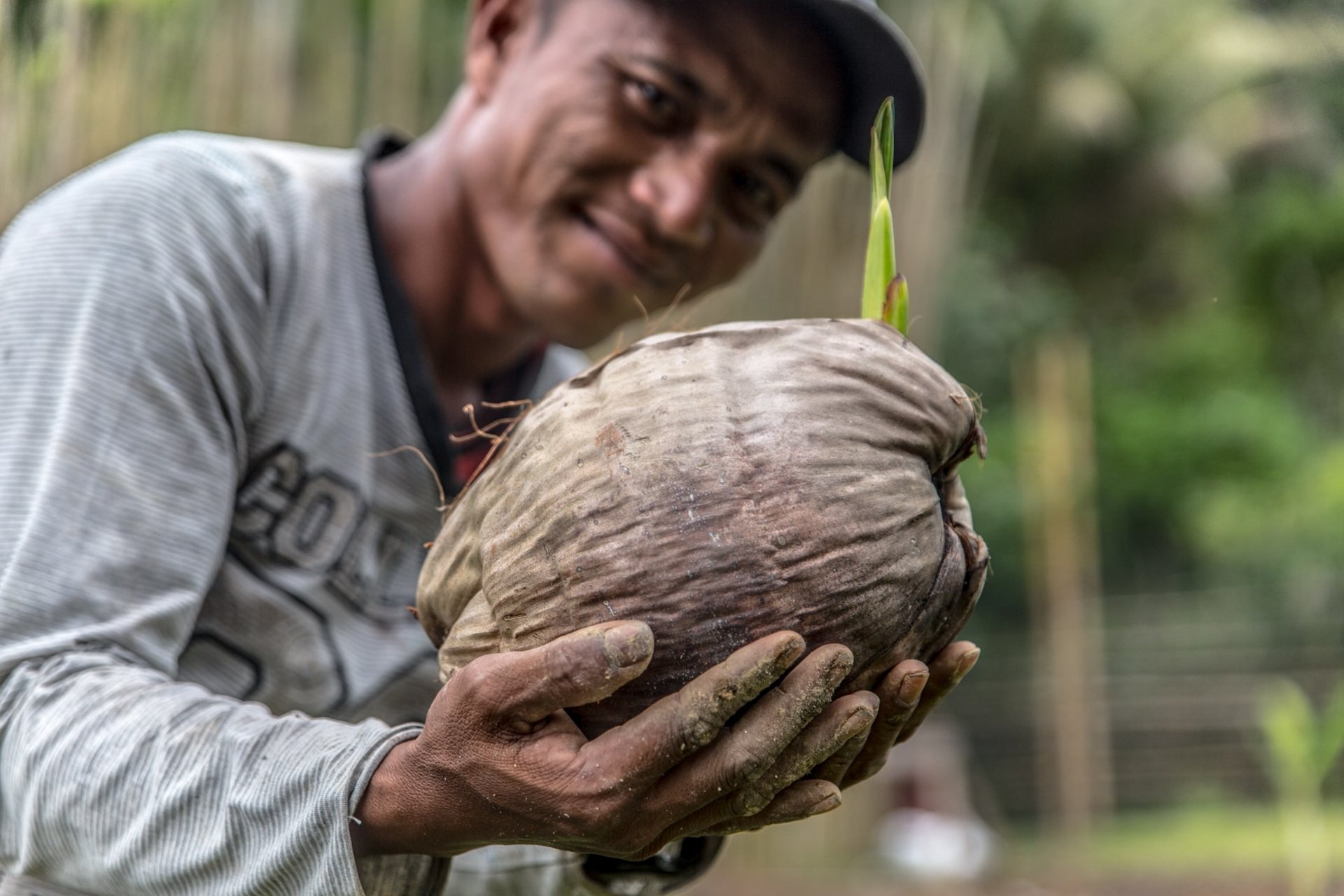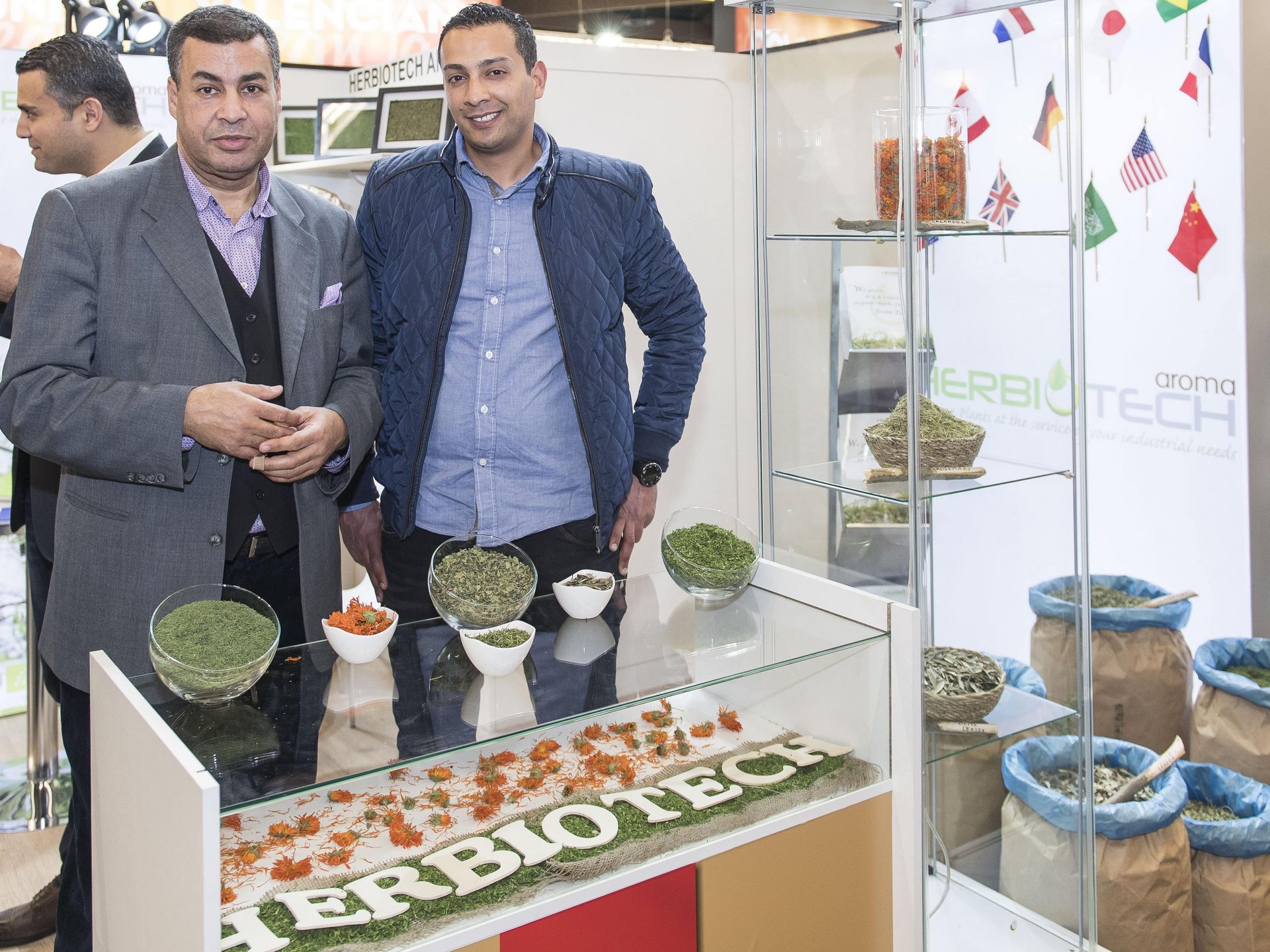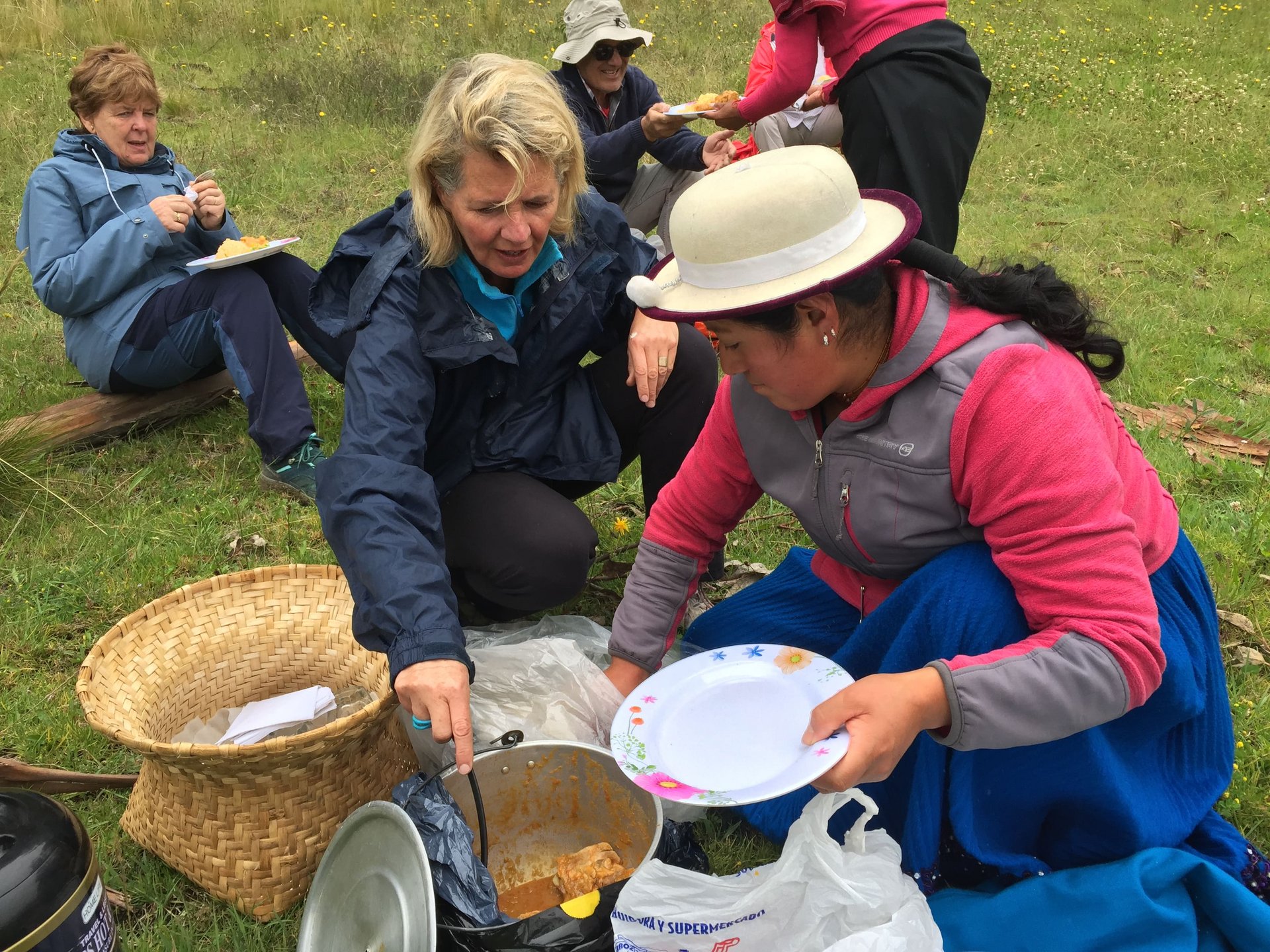Commitment to the environment and the community
Practicing sustainability
There are numerous small and medium-sized companies in the IPD programme that optimise their production processes, train small farmers in ecological cultivation methods, invest in renewable energies, support social projects in their community, have set themselves the goal of sustainability certification and are continuously making progress towards their goal.
Thanks to IPD, the companies are familiar with the framework conditions and requirements of the European market. For many of them, responsible use of natural resources and social cohesion in the region are a matter of course. They are already involved in individual areas and, with the support of IPD, their commitment is given a structure that is also comprehensible for potential trading partners.
Read about the IPD companies' commitment to sustainability here.
Cooperation with small farmers: continuous knowledge transfer
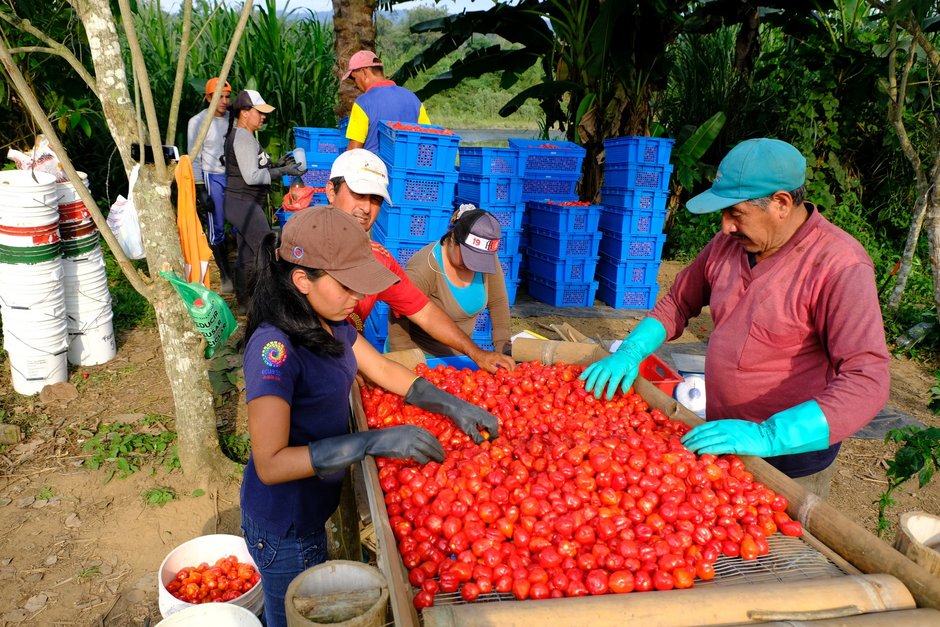
The company "Uchu Spice“ from Ecuador has specialised in the cultivation and production of a broad selection of chilli varieties. These range from the rather mild “jalapeño” to the very hot “habanero” peppers including many well-known and frequently used varieties, such as “Tabasco” and “Cayenne”, or specialties such as “Rocota” and “Scotch Bonnet” chilies. Depending on their intended use For the European food industry, the chilies are available dried, in flakes, as a powder, pureed or pickled, depending on their intended use.
Uchu works with around 600 small farmers in Ecuador and Peru. The company itself does not have its own cultivation areas. The model involves close cooperation with local producers. They are part of the chili network with long-term contracts.

With the "Uchu Field Schools", the company has launched a learning programme for farmers to provide them with continuous training. In addition to receiving the special seeds, the farmers also have access to trainings on sustainable cultivation practices in order to further develop quality and yields. Transfering this knowledge also secures the smallholders' livelihoods.
The company has also invested in improving its production processes: For example, a new washing system reduces water consumption. Another project aims to treat waste from the production process so that it can be used as organic compost.
Industry meeting: Working together for greater sustainability
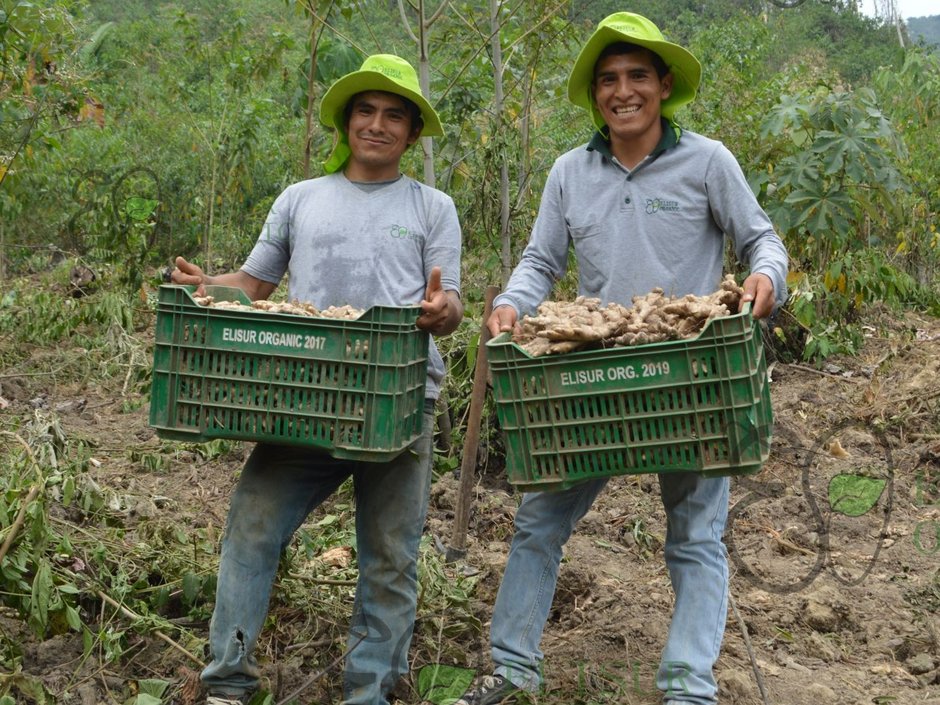
The company “Elisur Organic” was founded with the aim of improving the economic conditions of farmers in the central Peruvian rainforest. The producer of ginger and turmeric has drawn up an ambitious action plan, and is working it through step by step. A dedicated sustainability department is supporting the process.
Among other things, the action plan includes a code of conduct with a section on human rights, the development of a manual on occupational health and safety as well as corresponding training and the establishment of a product traceability system.
The company also promotes exchange within the industry in Peru. It has founded the “Ginger Week” initiative, bringing together all stakeholders acting in the ginger and turmeric value chain. Every year, producers, suppliers and traders meet with stakeholders from politics and civil society. They discuss topics such as the better protection of natural resources in the region, the reduction of the informal sector and the promotion of sustainability in ginger and turmeric cultivation.
Biodiversity: agriculture and nature conservation go hand in hand
The „Aluan“ company on Simeulue, an island off the west coast of Sumatra, produces high-quality virgin coconut oil. It works closely with small coconut farms on the islands. The company invests in reforestation measures protecting the traditional plantations from deforestation. This keeps investments, added value and jobs on the island.
Founder Jane Dunlop has also set up “EcoSystemImpact”, a nature conservation organisation that works on preserving biodiversity on the islands Bangkaru and Simeulue. Both organisations work hand in hand to protect ecosystems and wildlife in those regions. The “EcoSystemImpact” foundation supports ranger projects to protect sea turtles, rare bird and primate species.
Organic as a model for success: herbs from organic farming
“Herbiotech” is a Tunisian company producing dried herbs. The company's main products are dried olive leaves, dill, parsley and peppermint, but also basil, coriander and thyme.
The company opted for organic production at an early stage, systematically developing its range and aligning it with demand. The company used to buy in the raw materials, but then “Herbiotech” also took the cultivation of the herbs into its own hands. By growing the herbs themselves they were able to control the growing conditions. The harvest and the quality of the products could be further improved. The company's own cultivation areas also enable “Herbiotech” to react flexibly to the demand for certain herbs and to produce the herbs in the desired quantities in consultation with its customers.
The company has the following certifications, among others: EU organic seal, BioSuisse Organic, USDA Organic, JAS Ecocert, Naturland.
Involvement of the community: New jobs in tourism
When Sandra Rodriguez and Wendy Narvaez founded the tour operator “Discovering Americas”, their aim was to show the immense and diverse wealth of the country. This meant not always presenting the same tours and not beyond the reach of the local communities. Instead they developed an offer providing an authentic picture of Ecuador, leaving the beaten track, involving the communities and providing benefits to the local population.
Together they founded the tour operators “Discovering Americas” for the Ecuadorian mainland and “SATGAL” for the Galapagos Islands. Although the islands are a very popular travel destination, it became evident that the “colonos”, the local people, were not benefiting from tourism.
The two tour operators work in close cooperation with the communities - on many levels. They incorporate local products into their offerings, utilise locally sourced materials, generate employment opportunities, support social initiatives, and organise training programs on various topics, including social media and English courses, among other activities.
Interview
‘Together, trading partners can develop sustainable supply chains’
Judith Emmerling, team leader of the IPD Sourcing + Markets department in Berlin, presents the IPD's sustainability approach in an interview. She explains the importance of sustainability in global economic relations, how IPD prepares producers for the requirements of the European market and how importers can benefit from direct trade with IPD companies, including with regard to transparent supply chains.
